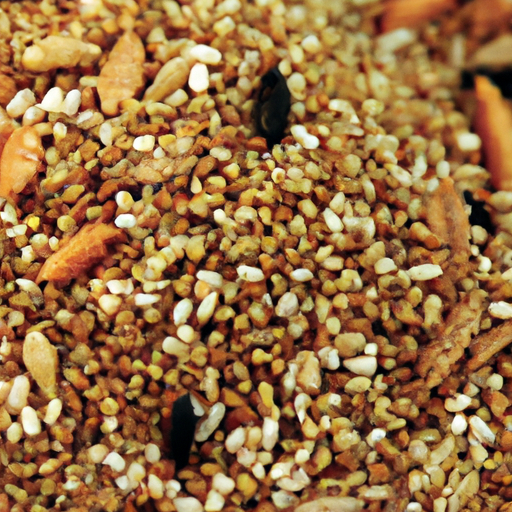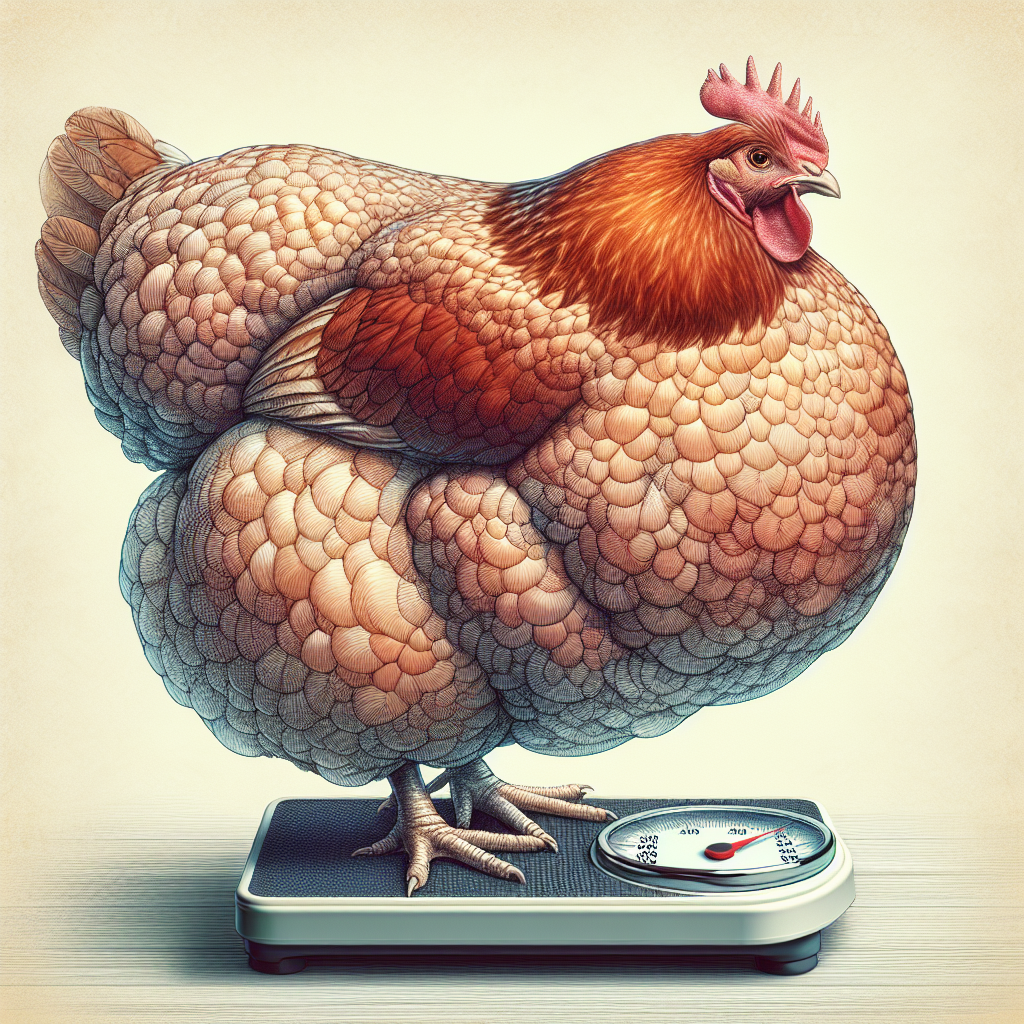As chickens grow older, their nutritional needs undergo significant changes. Just like humans, chickens require different types and quantities of nutrients at different stages of life. Understanding these changing nutritional needs is crucial for the health and well-being of your feathered friends. From providing the right balance of proteins, carbohydrates, and fats to ensuring an adequate intake of vitamins and minerals, adjusting their diet based on their age can contribute to their overall growth and development. So, let’s explore how chicken nutritional needs evolve as they age and how we can better support their health through proper feeding practices.
Understanding Nutritional Needs
Importance of Age-Appropriate Nutrition
As a chicken owner, it’s important to understand how the nutritional needs of your flock change as they age. Just like humans, chickens have specific dietary requirements at different stages of their lives. By providing them with the right balance of nutrients, you can ensure their optimal health and productivity. Let’s explore how chicken nutritional needs change as they age.
Chick Nutrition
In the early stages of life, chicks have specific dietary needs to support their growth and development. During this time, it’s crucial to provide them with a diet high in protein. A starter feed specifically formulated for chicks is ideal, as it contains the essential nutrients and amino acids required for healthy growth. This feed should be fed to chicks for the first 4-6 weeks of their lives.
Growing Chickens’ Diet
Once the chicks reach around 4-6 weeks of age, they can transition to a grower feed. This feed is designed to meet the nutritional needs of growing chickens. While it still contains a good amount of protein, the overall nutrient composition is adjusted to support their changing needs. At this stage, it’s essential to monitor their weight and adjust their feeding accordingly. Overfeeding can lead to health issues, while underfeeding can stunt their growth.
Laying Hens and Their Nutritional Needs
Transition to Layer Feed
As chickens continue to mature, they transition from the grower feed to a layer feed. Layer feeds are specifically formulated for chickens that are about to lay or are actively laying eggs. These feeds have higher calcium levels to support eggshell formation. It’s important to make this transition gradually to allow their bodies to adjust to the new feed. Generally, chickens start laying at around 18-22 weeks of age, but this can vary depending on the breed.
Calcium and Egg Production
Along with a balanced layer feed, it’s crucial to provide your laying hens with access to fresh water and free-choice oyster shell or crushed eggshells. This additional source of calcium helps ensure that the hens have enough calcium to produce strong and healthy eggshells. Without sufficient calcium, hens may lay eggs with thin or weak shells, leading to potential issues and nutrient deficiencies.
Consistency in Egg Production
It’s also worth noting that not all chickens will lay eggs consistently throughout their lives. Some breeds may experience a decrease in egg production as they age. During these periods of lower egg production, it’s still important to provide them with the appropriate nutrition, even if they’re not laying as frequently. This will help maintain their overall health and well-being.
Caring for Aging Chickens
Nutrition for Senior Chickens
As chickens age beyond their laying years, their nutritional needs may change once again. Older hens may benefit from a switch to a maintenance or senior feed. These feeds are formulated with lower protein levels to accommodate the reduced metabolic requirements of aging chickens. Additionally, supplements such as probiotics and vitamins can help support their immune system and overall vitality.
Micronutrients and Aging Chickens
Another consideration for aging chickens is the need for additional sources of micronutrients. As chickens age, their ability to absorb and utilize nutrients may decrease. Including sources of antioxidants, such as fruits and vegetables, can help support their aging bodies. Additionally, providing a clean and stress-free environment can help minimize the risk of diseases and keep them comfortable in their later years.
Body Condition and Diet Adjustments
It’s important to monitor the body condition of older chickens and make adjustments to their diet as needed. Obesity can become a concern, as aging hens are less active and may have a slower metabolism. Ensuring they have access to a balanced diet while managing portion sizes can help maintain a healthy weight and prevent common health issues associated with obesity.
Nutritional Needs of Roosters
Rooster Growth and Development
Roosters also have specific nutritional needs that change as they age. In their early stages, roosters can start with a grower feed similar to chicks. This will support their growth and development as they mature. However, once they reach sexual maturity, their diet can be adjusted accordingly.
Mature Rooster Nutrition
For mature roosters, a maintenance feed or an all-purpose poultry feed can be provided. These feeds are designed to meet the nutritional needs of adult chickens that are not actively laying. It’s important to ensure that they have access to a balanced diet, as roosters play a vital role in the overall health and social dynamics of the flock.
Individual Dietary Requirements
It’s worth mentioning that individual chickens may have specific dietary requirements or health conditions that require additional attention. Consulting with a poultry nutritionist or veterinarian can help address any specific concerns or nutritional needs that may arise.
Continuous Care and Monitoring
Adapting to Changing Needs
As chickens age, their nutritional needs continue to evolve. It’s essential to provide a balanced diet that meets their specific needs at each stage of life. Paying attention to their growth, egg production, and overall health can help determine the appropriate feed and supplements to support their well-being.
Observation and Adjustments
Regular observation and monitoring of your flock’s behavior, weight, and egg production can give you valuable insights into their overall health. Adjustments to their diet can be made based on their specific needs, ensuring that they receive the necessary nutrients for optimal growth and vitality.
Holistic Chicken Care
Remember, keeping chickens healthy and happy goes beyond just providing the right nutrition. Access to clean water, proper shelter, and a clean living environment are also crucial factors in their overall well-being. By taking a holistic approach to their care, you can enjoy the rewarding experience of raising and caring for chickens at every stage of their lives.
Conclusion and Final Thoughts
The Role of Nutrition in Chicken Health
Nutritional management plays a significant role in the health and productivity of chickens as they age. Understanding their changing nutritional needs at each stage of life allows you to make informed decisions about their diet. By providing an appropriate balance of protein, carbohydrates, fats, vitamins, and minerals, you can support their growth, egg production, and overall well-being.
Consultation and Continuous Learning
Consulting with experts in poultry nutrition or experienced chicken owners can provide valuable insights and guidance on feeding strategies for specific breeds or circumstances. They can help address any concerns or challenges you may encounter along the way, ensuring that your flock receives the best possible nutrition.
Commitment to Chicken Well-being
Remember, chickens are living creatures that rely on us for their nutrition and care. By becoming knowledgeable about their nutritional needs and adjusting their diet accordingly, you can play an active role in promoting their health and longevity. With proper nutrition, your chickens can thrive at every stage of life, rewarding you with delicious eggs, vibrant plumage, and the joy of watching them grow.
Foundational Knowledge in Poultry Nutrition
Understanding Nutritional Principles
While the specific nutritional needs of chickens may vary depending on their breed, individual factors, and environmental conditions, understanding the general principles of nutrition can give you a solid foundation to care for your flock. Continuously learning and staying updated on new research or advancements in poultry nutrition can help you provide the best possible care for your feathered friends.
Supplements and Treats
Additionally, incorporating natural supplements or homemade treats, such as mealworms, fruits, or leafy greens, can provide added enrichment and nutrition to their diet. It’s important to remember that these should be given in moderation and as complementary to their main feed.
Investing in Chicken Nutrition
By prioritizing their nutritional needs and providing a balanced diet, you can contribute to the overall health and well-being of your chickens. Your investment in their nutrition will be reflected in their quality of life, productivity, and the joy they bring to your daily life.
Concluding Thoughts on Chicken Nutrition
Adapting to Changing Needs
In conclusion, chicken nutritional needs change as they age. From the high-protein starter feed for chicks to the calcium-rich layer feed for laying hens, and eventually the more balanced maintenance feed for older chickens, their dietary requirements shift to support their changing needs. Monitoring their weight, egg production, and overall health can guide you in making appropriate adjustments to their diet.
Expert Consultation
Regularly consulting with poultry nutritionists or veterinarians can provide additional insights and guidance for addressing any specific concerns or conditions that may arise. Balancing their diet with proper nutrition, supplements, and a clean living environment will contribute to their overall well-being throughout their lives.
Nurturing Beyond Nutrition
Remember, raising and caring for chickens is not just about providing food; it’s about creating a nurturing environment that allows them to thrive. By considering their nutritional needs at each stage of life and adapting your approach accordingly, you can ensure that your flock enjoys a healthy, happy, and fulfilling existence.
Reiterating the Importance of Proper Nutrition
Building on Nutritional Foundations
While the specific nutritional needs of chickens may vary depending on their breed, individual factors, and environmental conditions, understanding the general principles of nutrition can provide a solid foundation for caring for your flock. By continuously learning and staying updated on new research or advancements in poultry nutrition, you can provide the best possible care for your feathered friends.
Enrichment Through Supplements
Additionally, integrating natural supplements or homemade treats, such as mealworms, fruits, or leafy greens can offer added enrichment and nutrition to their diet. Remember, these should be given in moderation and as a supplement to their main feed.
Responsibility and Rewards
As a responsible chicken owner, prioritizing their nutritional needs and providing a balanced diet will contribute to the overall health and well-being of your chickens. Your investment in their nutrition will be reflected in their quality of life, productivity, and the joy they bring to your daily life.
Final Thoughts on Chicken Care
Understanding and Adapting
In conclusion, understanding how chicken nutritional needs change as they age is vital for any chicken owner. By providing your flock with the proper diet at each stage of life, you can support their growth, egg production, and overall health. From starter feeds for chicks to layer feeds for active layers and maintenance feeds for aging chickens, there are specific formulations available to meet their changing nutritional requirements.
Monitoring and Consulting
Monitoring their weight, observing their egg production, and staying vigilant about their overall health will help determine the appropriate adjustments to their diet. Consulting with poultry nutritionists or experienced chicken owners can provide valuable guidance tailored to specific breeds or circumstances.
Comprehensive Care for Chickens
By providing the right balance of protein, carbohydrates, fats, vitamins, and minerals, along with appropriate supplementation and a clean living environment, you can ensure that your chickens thrive at every stage of their lives. Investing in their nutrition will not only benefit their health and productivity but also enhance the bond between you and your feathered companion.




